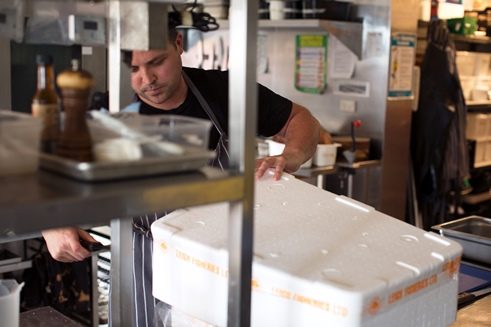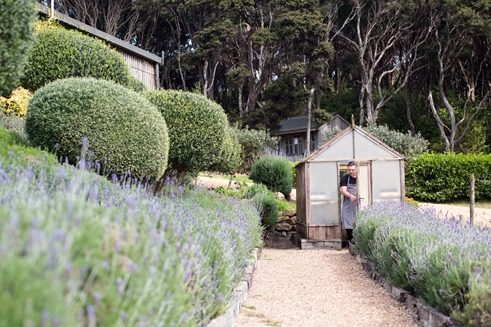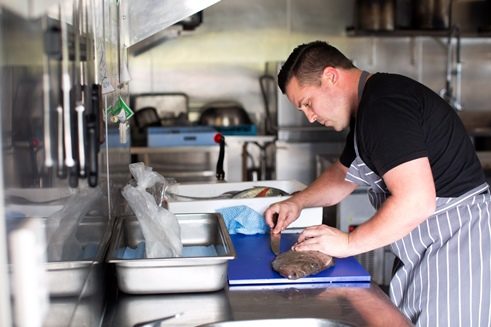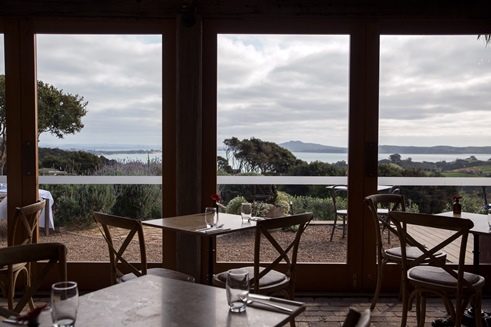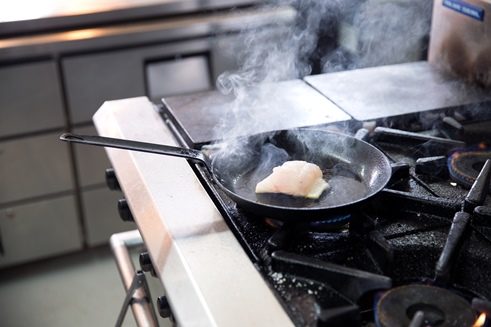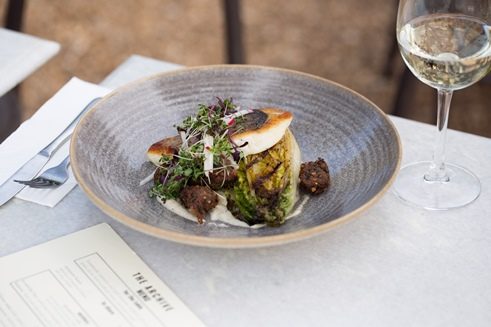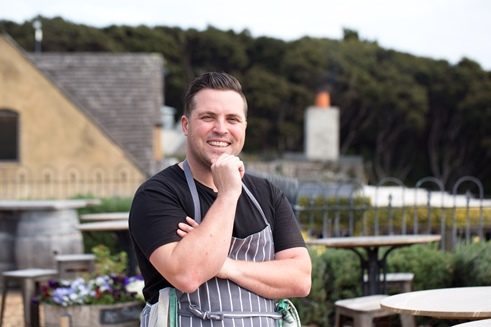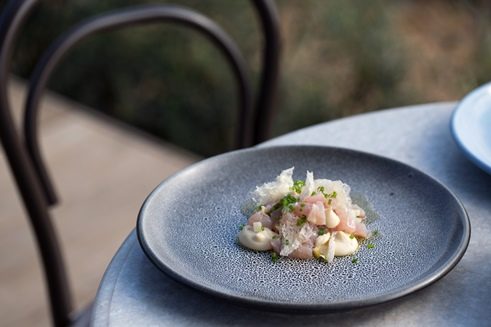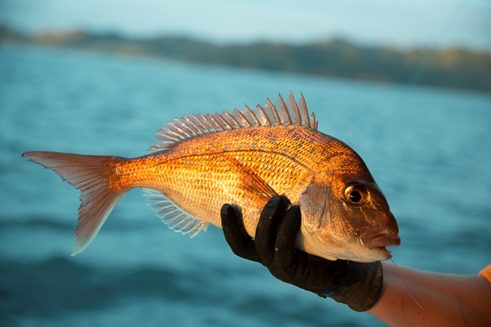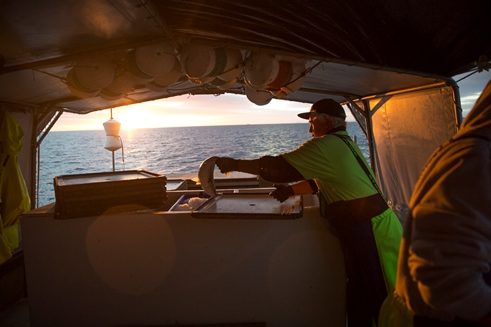Culinary Harbour Cities
Archive
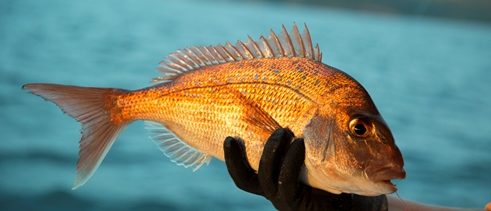
Archive Bar and Bistro is set atop Waiheke Island’s west coast. Auckland city is clearly visible in the distance seperated by the blue waters of the Hauraki gulf and the budding Mudbrick grape vines and native manuka and kanuka trees that make up the view from the restaurant’s marble and granite tables.
Most visitors arrive to Waiheke by ferry and it is that unique arrival by water and the restaurant’s location that inspired Archive’s head chef Logan Coath to revise the restaurant’s initial Provencal and European emphasis to one of championing New Zealand’s best ingredients and food producers.
“I hate the fact that they’ve turned into buzzwords, but we really try and do local, seasonal, ethical, sustainable food,” Coath says. Proving it isn’t just marketing buzz Coath rattles off the names of all his suppliers and often the back stories to how they came to be making world class ingredients in their pocket of New Zealand.
On today’s menu at Archive is the line caught snapper on smoked aubergine with grilled cos and radish salad as well as the raw twice spiked trevally from the fishing vessel Sapphire.
Recently the entire staff made a trip to Leigh fisheries in Leigh to look at where their fish and oysters came from and learn more about their sustainable fishing practices. “I wanna know where my stuff comes from and the the animals are respected and looked after,” Coath says. His passion is shared by his team although Coath wonders out load whether perhaps his obsession with the lifecycle of the animals and produce he uses in the restaurant borders on a cult.
“I’m passionate about where the food comes from,”Coath says with characteristic energy. “For me It’s not just a product in a pretty package that comes off a truck and gets dropped off at the back door and you open it and it tastes nice. It’s also about people who care as much about what they do as what we do and let’s figure out who those people are and try and align yourself with people with similar ideas and great things can come from that. The more collaboration and community you get it can only be a good thing.”
Watching Coath in the Archive kitchen opening the boxes of fish from Leigh Fisheries is reminiscent of Christmas morning as a child. The pristine whole fish in the box are linked back to the boats which brought them in and the time they were caught and how they were caught is also recorded. It is the kind of provenance that Coath cares about deeply and originates from his days working in London at Le Cafe du Marche. His first day there was a mind-shifting moment for him when eleven rabbits were delivered in individual boxes carefully laid on a bed of hay.
“For farmers the food process stops at the gate for the most part,” Coath says. “Where it’s come from and the people that were looking after the animals is often forgotten at the table and we want the farmers to know that the love and care they put into these animals is reciprocated.”
